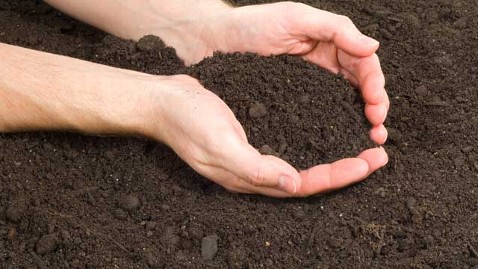Soil Remediation for Veggie Gardens

If you’ve ever wondered why you’re seeing a different crop in a field than what’s been grown year after year it could be a green manure crop. This planting technique is integral to farming practices as, like with home gardening, it remediates the soil and provides a good base for the next season. We can take a page from farmers with this sort of practice since we all know, great soil means great veggies! Here’s a few extra tips to ensure your kitchen garden gets the right start, and sooner rather than later you can start enjoying the literal fruits of your labour.
Buy the right soil
It goes without saying that Ridgeview carries a good quality soil with organic matter to support growth. That being said some dirt is just dirt so if you’re not purchasing from us make sure you know what you’re starting with and be sure to ask the garden centre representative. You can use a soil test kit to confirm if your existing soil is just not up to snuff. Good soil also has a distinct look and feel that can only be described as light and fluffy. Our simple test for soil density is to poke a finger into the soil. It should easily go down all the way to the third knuckle. If your soil fails this test, you will probably want to add some peat moss or vermiculite to your topsoil to lighten it. Think about the roots of your plants, if the soil is too dense they won’t be able to set a firm root system and then the pretty much have no legs to stand on.
Fertilize
If you can compost, then do it!! I realize that it’s tricky but there are urban compost boxes that can help keep it contained. Composting when done right should not have much of a smell and will add lots of critical nutrients to your soil. Another reason composters are a good complement to gardening is that they provide a way of dealing with the dead plant matter after harvesting. For example, once we finish picking the last of the tomatoes, the remaining stalks can be chopped up with a hoe and tossed into the compost. If you simply can not fathom a composter, organic fertilizer is your next best bet. Fish emulsion, bone marrow, manure, even seaweed blend fertilizers are all great organic options to help boost the soil in your veggie patch. This leads us to our next subject, previously mentioned, green manure crop.
Green Manure Crops
Ever couple of years soil will need a really good break, this can be provided by allowing a soil crop that can be planted and simply sowed under once it reaches maturity. These easy to grow crops pull the deeper nutrients from the soil and when sowed into the soil will help to add to the all important fluffiness. Additionally as it breaks down, instant organic matter. A good manure crop could be rye grass, agricultural mustard, alfalfa or buckwheat.
Rock Phosphate
Sounds pretty cool eh? It’s actually not as rockin’ as the title may imply but it is important. Like the green manure crop, once a few seasons have passed, you will need to add rock phosphate. Phosphate is often overlooked but very important, filled with zinc, nickel & iodine, elements we may not immediately consider vital but help with optimal growth. A good rock phosphate will provide slow even release of these nutrients.
Looking for success in your garden? Start from the ground up!

